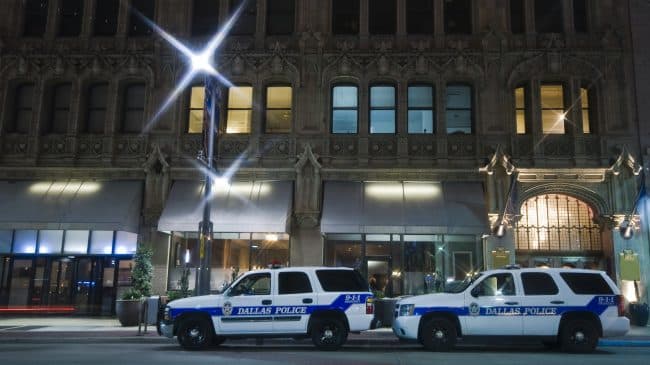It is early, but a year after Texas adopted reform legislation for the beleaguered Dallas Police and Fire Pension System (DPFP) there are some signs of positive trends.
As we documented over the past year, DPFP stumbled into a solvency crisis primarily through a series of irresponsible investments, overly optimistic assumptions, and a policy that allowed members to make lump sum withdrawals of their Deferred Retirement Option Plan (DROP) funds at will (rather than in a forced lump sum) over virtually an infinite period with an excessively high guaranteed return on investments. These flaws were likely the product of the plan’s poor governance structure.
Soon after the reform passed, Dallas Mayor Mike Rawlings appointed six out of 11 trustees to a newly reconstituted DPFP board of trustees. The intention of this move was to better safeguard the interests of city taxpayers, who previously had no real say in the way Dallas managed its public pension plan for police officers and firefighters but who also bore significant financial liability for the fund.
Prior to the 2017 reform, the DPFP board, whose composition was set in state statute, was primarily made up of plan members, beneficiaries, or labor union affiliates. This meant the board could make unilateral changes to the pension plan with no checks from elected officials, which ended up leading to some disastrous choices.
This is not to say that union-led boards are inherently going to make mistakes, or that pension boards with elected officials would avoid disastrous choices. There is clear evidence that pension boards dominated by political appointees can also make poor choices that undermine long-term solvency. Where DPFP was set up for failure was the lack of balanced incentives in the overall representation. The previous board was structured to favor high guaranteed rates, which led to a focus on leveraging high investment risks in the hopes of producing robust returns.
The newly constituted board is now more balanced, with three non-member trustees, two trustees to represent police and fire, and six mayoral appointees who all have extensive asset investment experience under their belts. For example, the new chairman of the board is a retired executive of a large asset management and mutual fund company.
And so far, this has made a difference. The new board has already taken positive steps towards improving DPFP solvency, with their first major move being a change to the pension system’s DROP program. As authorized under the pension reform legislation and the new DROP policy, the DROP accounts will no longer be receiving a guaranteed 8- to-10 percent return but instead will be credited with returns related to 5-to-30-year Treasury Yield rates (effectively granting a risk-free rate of return).
Further, members will no longer be able to withdraw their DROP funds whenever they like, which was a particularly problematic practice not commonly found with other DROP programs. Members will now be required to withdraw their DROP funds after 10 years in the program, which better matches common policy found in responsibly managed DROP programs. As a comparison, Los Angeles firefighters and police officers are limited to 5 years in DROP, during which they receive 5 percent guaranteed returns, and then have to withdraw account balances either in a lump-sum, rollover, or combination of the two.
Additionally, the board has adjusted the way DROP payments will be made. According to the new policy, all DPFP members’ DROP balances — except for those who are still in active service with the City of Dallas or have “financial hardship” — will now be annuitized (instead of distributed in lump sums) into a series of either monthly or annual payments over the members’ expected lifespans.
While annuitizing DROP balances is non-traditional — effectively the DROP balances are added back into the pension stream of payments — the move reduces the risk of another major drop in the DPFP’s funded status from members withdrawing their remaining balances. This will help protect the solvency of the pension plan for current and future retirees and help restore the city’s credit rating.
Another major change the new DPFP board will likely make is related to investment strategy. In 2015, the value of the plan’s portfolio dropped by $1 billion due to investments in overpriced real estate holdings. For this and other reasons, the plan’s returns averaged out to just 1.0 percent over the 2007-2016 period. Bill Quinn, the new board chairman, labeled these previous investments as “mind-boggling.” Going forward, the board is likely to move away from some of the high stakes bets and better control investment risks for the future.
The Dallas pension reform process is still clearly in its early stages, and certain optimism this year may be partly warranted based on the fortune of a good year of returns on equities. But this shouldn’t be mistaken for a changing trend towards higher year-over-year overall returns. For now, however, the first steps taken by the new DPFP board have been positive ones, demonstrating the value in passing reforms that focus on some of the core issues: governance and supplementary pension accounts.


